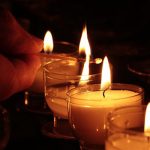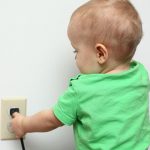Some areas get a lot of blackouts, especially in rural areas. Whether you get a lot or a few, being suddenly and unexpectedly without power is annoying, especially at night when you are depending on it for light and heat. It’s a good thing to be prepared for power loss because it can happen at any time, not just in a storm.
Here are some tips to help you cope with a blackout.
- Keep a torch in the same place all the time so you know where it is.
- Phone an electrician if yours is the only house blacked out.
- Have a supply of candles and matches, or some other means of lighting your night after the power goes out. Make sure everyone knows where they are.
- When using candles, make sure they are stable and out of reach of children. Don’t place them under overhead cupboards or near curtains.
- If it is really cold weather, layer up with clothes and add a coat or dressing gown over the top. You may also need a beanie and gloves, along with thick socks.
- If it’s night time, just go to bed for warmth.
- Close the doors and windows to keep the house warm.
- Have an uninterruptible power supply with battery backup for your computer, so you’ll have a chance to power down properly without losing any work. Unplug the computer and other sensitive electrical equipment.
- If the blackout is expected, e.g. for line maintenance, make sure you have a thermos of hot water and an esky packed with food to save opening the refrigerator.
- Purchase a gas camping stove for daytime use during a blackout, but use it on the veranda, not inside.
- Turn off all electrical equipment so it is not in danger should a surge in the power occur.
- Leave one light switched on so you’ll know when the power comes back on.
- If the blackout is caused by a storm, stay inside, especially if there are trees down outside. Trees often bring live wires down with them and even walking in water nearby can be dangerous.
- Sometimes, little children can be frightened when there is a blackout. It’s important to reassure them that nothing bad will happen. You can make a game out of it by pretending that you are all camping or being pioneers.
- Once you’ve organised your own home, check on the neighbours if it’s safe to go outside. At risk would be the elderly who live alone, chronically ill people and single parents with little children.
It’s good to be prepared for blackouts even if you don’t get them very often. At the very least, it can save a lot of inconvenience and frustration if you know where the torch or candles are.
If your blackout is going to last for some days, it could be best to go and stay with relatives or friends until it is over. That way you will be safer and able to at least have a hot shower.





